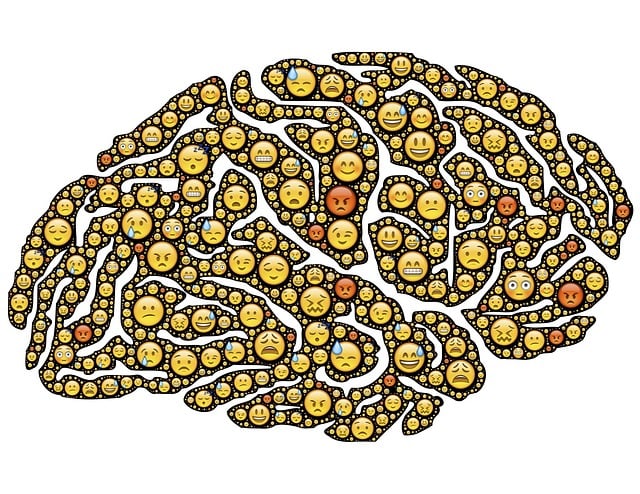Maximizing mental health support for Hebrew-speaking young adults requires culturally sensitive public awareness campaigns that reduce stigma, promote self-awareness and provide tailored resources. Utilizing both traditional media like television, radio, print and digital platforms such as podcasts and targeted ads, these campaigns can effectively reach diverse audiences, foster trust through community stories, and encourage open dialogue about mental wellness. Key evaluation metrics, focusing on knowledge, attitudes and behavioral changes, are crucial to measure campaign impact and refine strategies for better serving the specific needs of young adults in Hebrew-speaking communities, particularly regarding therapy access.
Public awareness campaigns play a pivotal role in educating and empowering specific demographics, such as the Hebrew-speaking young adult population. This article delves into the intricate process of designing impactful initiatives tailored to their unique needs and challenges, including mental health issues that often require sensitive therapy approaches. We explore effective messaging strategies, the optimal use of traditional and digital media, and evaluation metrics for gauging campaign success in this diverse community.
- Understanding the Hebrew-Speaking Young Adult Population: Needs and Challenges
- Crafting Effective Messaging: Cultural Sensitivity and Engagement Strategies
- Choosing the Right Channels: Traditional vs Digital Media for Maximum Reach
- Measuring Impact: Evaluation Metrics for Successful Public Awareness Campaigns
Understanding the Hebrew-Speaking Young Adult Population: Needs and Challenges

Understanding the needs and challenges of Hebrew-speaking young adults is crucial when developing public awareness campaigns for mental health. This demographic, often navigating life’s twists and turns, may face unique barriers to accessing support due to cultural nuances and language differences. Many young adults in this community might prefer therapy in their native tongue, seeking comfort and understanding from therapists who share their linguistic background. Barriers such as the availability of Hebrew-speaking mental health professionals and culturally sensitive resources can significantly impact a young adult’s willingness to seek help for stress management or even address more complex mental illnesses.
Public awareness campaigns should aim to reduce the stigma surrounding mental illness within this population by highlighting the importance of self-awareness exercises and open conversations. By encouraging Hebrew-speaking young adults to recognize their emotional needs, these initiatives can empower them to take initiative in their mental health journeys. This includes promoting accessible resources, such as online platforms or support groups, tailored specifically to address cultural and linguistic barriers, ensuring that therapy for young adults Hebrew speaking is not only available but also welcoming and effective.
Crafting Effective Messaging: Cultural Sensitivity and Engagement Strategies

Creating impactful public awareness campaigns requires a deep understanding of cultural sensitivity and effective engagement strategies. When addressing issues like mental health among young adults in Hebrew-speaking communities, it’s vital to tailor messaging that resonates with diverse cultural backgrounds and beliefs. Sensitivity towards various customs and values ensures that the campaign reaches its intended audience authentically. For instance, incorporating stories and testimonials from within these communities can foster a sense of trust and encourage open dialogue about mental wellness.
Emotional healing processes and mind over matter principles are powerful tools to engage young adults in therapy. A well-crafted mental wellness podcast series production can serve as a medium to deliver these messages, offering practical insights and inspiring narratives. By combining cultural sensitivity with engaging content, awareness campaigns can effectively initiate conversations, dispel stigma, and ultimately encourage Hebrew-speaking young adults to prioritize their mental health and seek professional support when needed.
Choosing the Right Channels: Traditional vs Digital Media for Maximum Reach

In today’s digital era, public awareness campaigns have evolved to encompass both traditional and digital media for maximum reach. While television, radio, and print remain powerful tools, especially for a specific demographic like young adults in Hebrew-speaking communities, digital platforms offer unprecedented opportunities for engagement. For instance, mental wellness podcast series production can tap into the popularity of audio content, making complex topics accessible and relatable to a wide audience. This strategy ensures that valuable stress management and compassion cultivation practices information reaches not just those actively seeking it but also the general public.
By leveraging digital channels, campaigns can also better target specific groups within the Hebrew-speaking young adult population, such as those dealing with unique challenges related to therapy for young adults. Social media, online forums, and targeted ads allow for precise messaging, ensuring that the right information gets to the right people. This multi-platform approach not only amplifies the campaign’s impact but also fosters a more comprehensive discussion around mental wellness, ultimately leading to a healthier and more compassionate community.
Measuring Impact: Evaluation Metrics for Successful Public Awareness Campaigns

Measuring the impact of public awareness campaigns is crucial to understanding their effectiveness and identifying areas for improvement. Evaluation metrics play a vital role in gauging the success of initiatives aimed at promoting mental health, especially among young adults in Hebrew-speaking communities. One key metric is tracking changes in knowledge and attitudes towards specific issues; for instance, assessing how campaign messages about therapy for young adults resonate with the target audience. Pre- and post-campaign surveys can gauge shifts in perception, ensuring that the messaging has been well-received and understood.
Additionally, looking at behavioral changes is essential. Campaigns focused on fostering emotional intelligence and encouraging self-care practices among young adults might measure increased participation in related workshops or online resources. By analyzing these evaluation metrics, campaign organizers can tailor their strategies, ensuring that efforts to promote positive thinking and emotional well-being are reaching and benefiting the desired population.
Public awareness campaigns aimed at Hebrew-speaking young adults require a nuanced approach that considers their unique cultural and social dynamics. By understanding the specific needs and challenges of this demographic, we can craft effective messaging that resonates with them. Leveraging both traditional and digital media channels ensures maximum reach, while employing evaluation metrics to measure impact is crucial for success. Ultimately, these campaigns have the potential to foster positive change and provide essential support for young adults seeking therapy tailored to their linguistic and cultural backgrounds.














